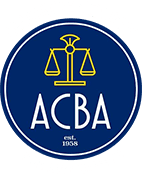
Denver Divorce Lawyer
Treating Your Family Matters with Respect, Honor, & Dignity in Jefferson County, Douglas County, Arapahoe County, & Adams County, Colorado
Separating from a spouse can be incredibly difficult, both emotionally and financially. The sadness, anger, remorse, and other feelings common to divorce situations can cloud judgment, often leading to poor decisions.
This is why working with a qualified divorce attorney in Denver, like the experienced and caring legal professionals at Curtis Law Firm, makes such a difference. Our Denver divorce attorneys have provided clients with personalized representation for more than 15 years. We advocate for your financial interests during a divorce case or legal separation and strive to find ways to minimize legal expenses wherever possible.
Some law firms in Denver charge high fees for services, but Curtis Law Firm is committed to making representation accessible and affordable, especially when you already face financial constraints during a divorce.
Our experienced attorneys understand the requirements and processes of Colorado divorce law, including local court procedures in Denver County and surrounding regions. We assist clients across the metro area and tailor our strategies based on each family's finances and goals. Each divorce case presents unique challenges, and we clarify your legal rights from the start while keeping you informed at every step.
Schedule an initial consultation with Curtis Law Firm online or at (720) 408-7726 to get started with quality legal guidance from a Denver divorce attorney.
Understanding the Colorado Divorce Process
Divorce in Colorado follows a defined process, starting with the filing of a petition in the district court. At least one spouse must meet the residency requirement by living in the state for at least 91 days before filing. After you submit your petition, the court sets initial deadlines for financial disclosure, parenting classes if children are involved, and the setting of a temporary orders hearing.
The process frequently includes the following steps:
- Filing the petition and serving the other party
- Completing financial disclosures required by Colorado law
- Negotiating settlement on issues such as asset division, debt responsibility, child custody, and spousal support
- Attending mediation, if required by the court or if desired by the couple
- Presenting unresolved issues to the judge for a final ruling at a contested hearing
- Receiving the decree of dissolution of marriage from the court
Although many divorces reach settlement out of court, contested issues can result in court hearings at the local Denver County District Court. The overall timeline varies based on the complexity of the issues and the willingness of both parties to resolve matters amicably. Our attorneys help clients understand each court deadline and requirement throughout the process, ensuring every action adheres to Colorado law.
Child Custody & Support in Denver Divorce Cases
Colorado law prioritizes the best interests of the child when courts make decisions about custody—referred to as "parental responsibility." Parents may agree to an arrangement on their own, but if not, the court will evaluate factors such as the child’s relationship with each parent, their adjustment to home, school, and community, and each parent’s ability to encourage the child’s relationship with the other parent.
Court-ordered parenting plans must address both physical custody (where the child lives) and legal custody (decision-making authority). The court may require mediation for custody disputes in Denver County before proceeding to trial. Child support is determined using a statewide formula that takes into account both parents' incomes, the number of overnight stays, costs for health care, education, and other expenses. Each parent must submit a detailed financial affidavit to ensure accurate support calculations.
Our firm works closely with parents to promote parenting plans that suit children’s needs while respecting each family’s unique circumstances. We guide clients through the child support calculation process and clarify how Colorado’s formula may affect monthly obligations based on specific financial situations. Denver area courts expect all parties to work in good faith toward fair, child-focused solutions whenever possible.
Spousal Maintenance & Financial Disclosure Requirements
Colorado uses the term "spousal maintenance" for what many other states call alimony. The court can award temporary or permanent maintenance based on formulas set by state law and guidelines for the length of the marriage, difference in income, and each party’s financial resources. Spousal maintenance aims to promote financial independence while recognizing disparities that might arise during a marriage, especially long-term ones.
Both parties must submit thorough financial disclosures covering all income, assets, debts, and expenses. These reports help the court and attorneys evaluate appropriate levels of support and create fair outcomes. Denver County courts enforce these disclosure requirements strictly, and failure to provide accurate, timely information can delay the process or result in legal penalties.
The attorneys at Curtis Law Firm provide support throughout the disclosure process and help clients prepare, review, and understand what the court expects. We make sure every detail is considered when negotiating or presenting arguments for or against maintenance, always focusing on financial stability moving forward.
Divorce vs. Legal Separation
What Is the Difference Between Divorce & Separation?
There are a few core differences between divorce and legal separation. Divorce is a formalized and final process that dissolves the legal spousal partnership between married individuals. To petition for divorce, at least one spouse must reside in Colorado for at least 91 days before filing and should cite the reason (or no-fault) for divorce. From there, the spouses will proceed through several steps to negotiate a final divorce settlement that divides all property, assets, and time with children. After finalizing the divorce, the marriage is terminated and the couple is no longer married.
If you are considering ending your marriage, it helps to understand how the legal process works in Denver. Divorce filings take place in the local county district court, and Colorado law follows a "no-fault" system, meaning the court does not consider which party caused the marriage to end. Instead, the focus shifts to fair and efficient resolution of property, finances, and child-related matters.
With legal separation, however, the couple remains legally married. Individuals or couples who feel they can no longer live with a spouse but are not ready for the finality of divorce—perhaps for moral, religious, or financial reasons, or because of the effect on their children—may elect to pursue legal separation. In this scenario, the parties are not free to remarry unless they convert the legal separation into a divorce. Some separating couples choose this option because, although the individuals may not remarry, they remain eligible for their spouse’s insurance.
Legal separation also requires spouses to create a separation agreement that covers:
- Property division
- Child custody and visitation
- Financial concerns, such as maintaining spousal health insurance
The separation agreement becomes official once approved by the court, carrying the same weight as a court order in a divorce. This ensures enforceability. In Colorado, the agreement should provide clarity on how assets, debts, and any child-related matters are handled, which can reduce future disputes between parties and give families clear guidelines.
Like a decree of divorce, a decree of separation releases both parties from legal and financial responsibility for the other, including child support, debt, and taxes. However, the marriage is not terminated and the individuals may not remarry.
How to Get a Legal Separation
If you decide that legal separation is right for you, you can obtain it by filing an action alleging that the marriage is irretrievably broken since Colorado is a no-fault state. These are the same grounds as for divorce in Colorado.
To initiate a legal separation in Denver, you follow similar procedures as divorce cases. This includes filing a petition with the district court, satisfying residency requirements, and completing mandatory disclosures about finances, assets, and debts. Parties are often required to take parenting classes if children are involved. The court reviews the separation agreement to make sure it protects the interests of both spouses and children.
You do not have to retain an attorney to represent you for separation in Colorado, but given the long-term consequences, it is important to connect with a divorce attorney in Denver for guidance throughout the process.
Do I Have to Be Legally Separated Before Getting a Divorce in Colorado?
In Colorado, you do not need to undergo legal separation before filing for divorce. Legal separation in Denver is a reasonable option for couples who are still living together with higher than normal tensions at home. To learn more about the Denver legal separation process or to ensure that the actions you take do not have unintended consequences down the road, contact a divorce attorney in Denver, Colorado.
To get started on your FREE case evaluation, contact our Denver divorce attorneys online or at (720) 408-7726 today.
How Are Divorce & Separation Similar in Colorado?
Legal separation is similar to divorce in that spouses will no longer live together or act as a married couple, yet they remain legally married. As with filing for the divorce process, to petition for separation at least one spouse must meet Colorado’s 91-day residency requirement.
Whether you pursue a divorce or legal separation, you must address important aspects such as child custody, child support, property division, and spousal maintenance. These matters are governed by Colorado statutes and handled by the local court based on the facts of your situation. Even if you believe you and your spouse can reach agreement outside of court, final decisions must comply with state law and receive approval from a judge, ensuring protection for both parties and children involved.

Our Testimonials
Hear What Our Clients Are Saying
-
"He fully investigated points that needed clarification."He is very caring and makes sure you understand the complications that are involved in your case.- Laura S.
-
"Very understanding law firm also and a lawyer that cares about your case!"If it wasn’t for Cory, I don’t think my case would’ve gone good like it did.- Dania C.
-
"Overall this firm is great, they care about their clients!"Stacy was wonderful very helpful and informative. She made the whole process easy and smooth.- Shirley S.
-
"Corey and his staff especially Stacy were exceptional."They fully represent you as a client and fight for what is right and in the best interest of the children.- Frank E.
-
"Curtis Law Firm is better than 5 stars."Small enough to care and knowledgeable to know what they are doing.- Mary J.
-
"He very patiently answered all our questions (and we had a lot of them)."It was wonderful to be reassured, His office staff was courteous, and Mr. Curtis was knowledgeable, professional, but was very personable.- Shirley H.
-
"He is very knowledgeable, professional, and likeable."I have referred friends and family to him because I trust he will provide them with excellent legal representation.- Amy G.
-
"Nice smart compassionate lawyer."Very smart. Very resourceful. Addresses all options.- Jason C.

Why Choose Curtis Law Firm?
-
BiLingual Communication
We have staff members who speak Spanish.
-
Appointment FlexibilityWe make ourselves available to help accommodate your schedule.
-
Affordable Legal RepresentationWe make good legal help attainable with small retainers, payment plan options, and financing if needed.
-
Providing SupportFamily changes can be emotionally hard. We help make it easier.




